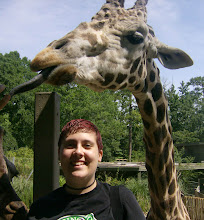 Feed by M.T. Anderson is a chilling portrayal of the future. Set in a time where there are layers of suburbs and great bubbles around every home, it introduces us to the ultimate gadget, the Feed. The Feed is basically a computer implanted into the brain. It can wirelessly chat with other Feeds, order products off the internet, show television programs, play music, and is constantly streaming advertisements, like this:
Feed by M.T. Anderson is a chilling portrayal of the future. Set in a time where there are layers of suburbs and great bubbles around every home, it introduces us to the ultimate gadget, the Feed. The Feed is basically a computer implanted into the brain. It can wirelessly chat with other Feeds, order products off the internet, show television programs, play music, and is constantly streaming advertisements, like this:
"Images of Coke falling in rivulets down chiseled mountainsides...a hand extended toward the lemonade like God's at Creation; boys in Gap tees shot from a rocket... Nike grav-gear plunging into Montana... friends clutching at birds made of alloys; law partners jumping fences; snow; altitude; tears; hugs; night."
The narrator, Titus, describes how the Feed has a customer profile for everyone, and can guide people in purchases, even telling them when they like a new product before they even have a chance to form an opinion. Big corporations have unimaginable power with the Feed, churning out more consumers with ease.
The Feed has also rendered the population blind to the world around them. Meat is now grown in huge fields of muscle tissue pumped with nutrients through tubes. Huge hoards of of cockroaches live on top of the bubbles around suburbs. The ocean is toxic sludge. There are huge air factories. People go on interplanetary vacations, but they're super lame.
Titus is ignorant to all of this until he meets a girl named Violet. She's unlike anyone he's ever met. She lives in a home without a bubble. She lives with only her father, and they are very poor. She got a feed at an older age than most everyone else. She wants to rebel against the customer profiles, mess up the corporate world.
But things begin to go wrong. After a hacker messes with their feeds while they are on vacation at the moon, Violet's out-of-date Feed starts malfunctioning. She loses feeling in her limbs for hours at a time. But when she begs the help of the corporations who power the Feed, they turn her down, for she isn't a valuable enough customer.
Although it's a young adult novel, Feed makes serious, mature comments on technology,our attitude towards the environment, and human connection. It delves into what the Digtial Age may make of us.










